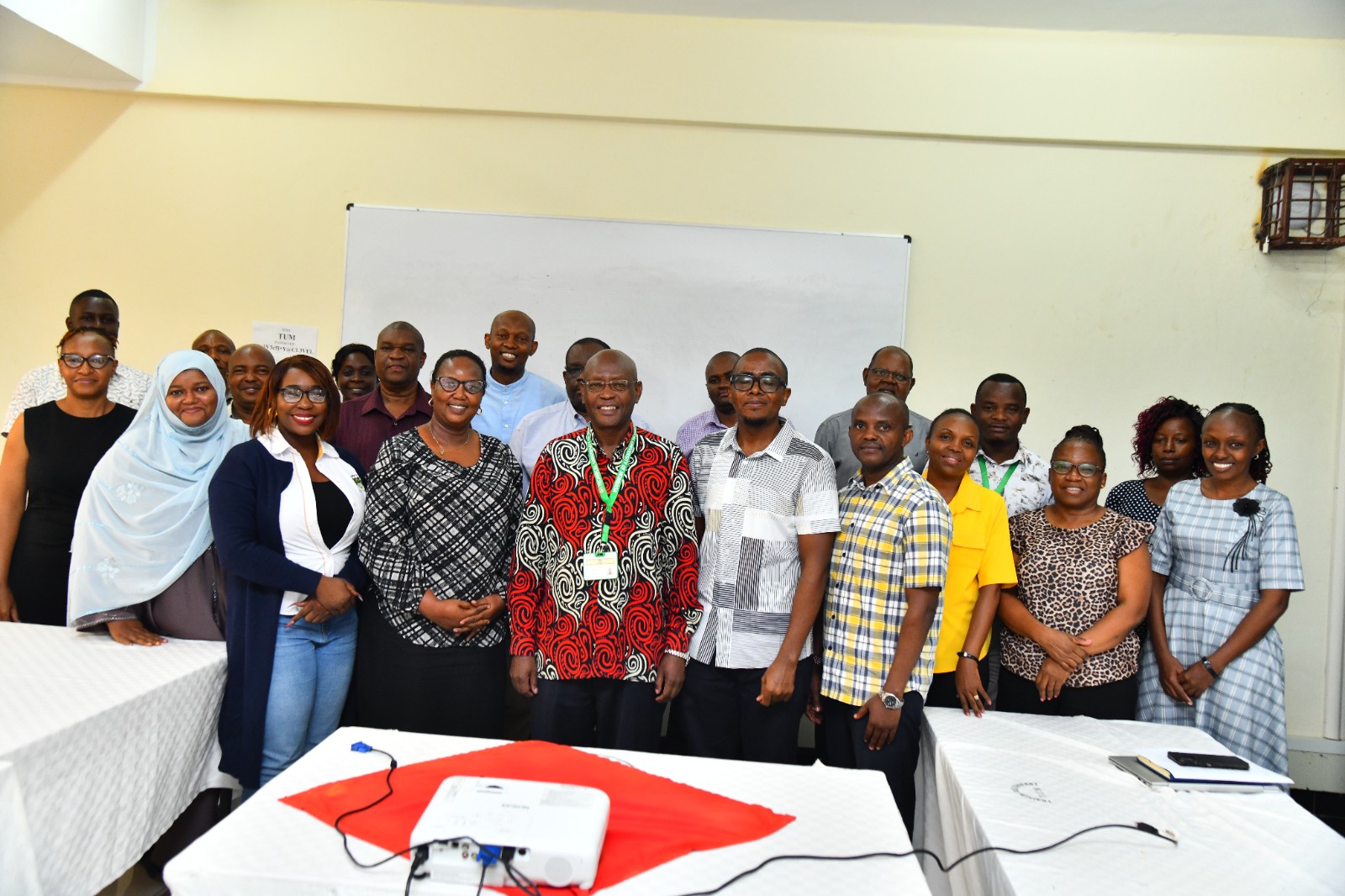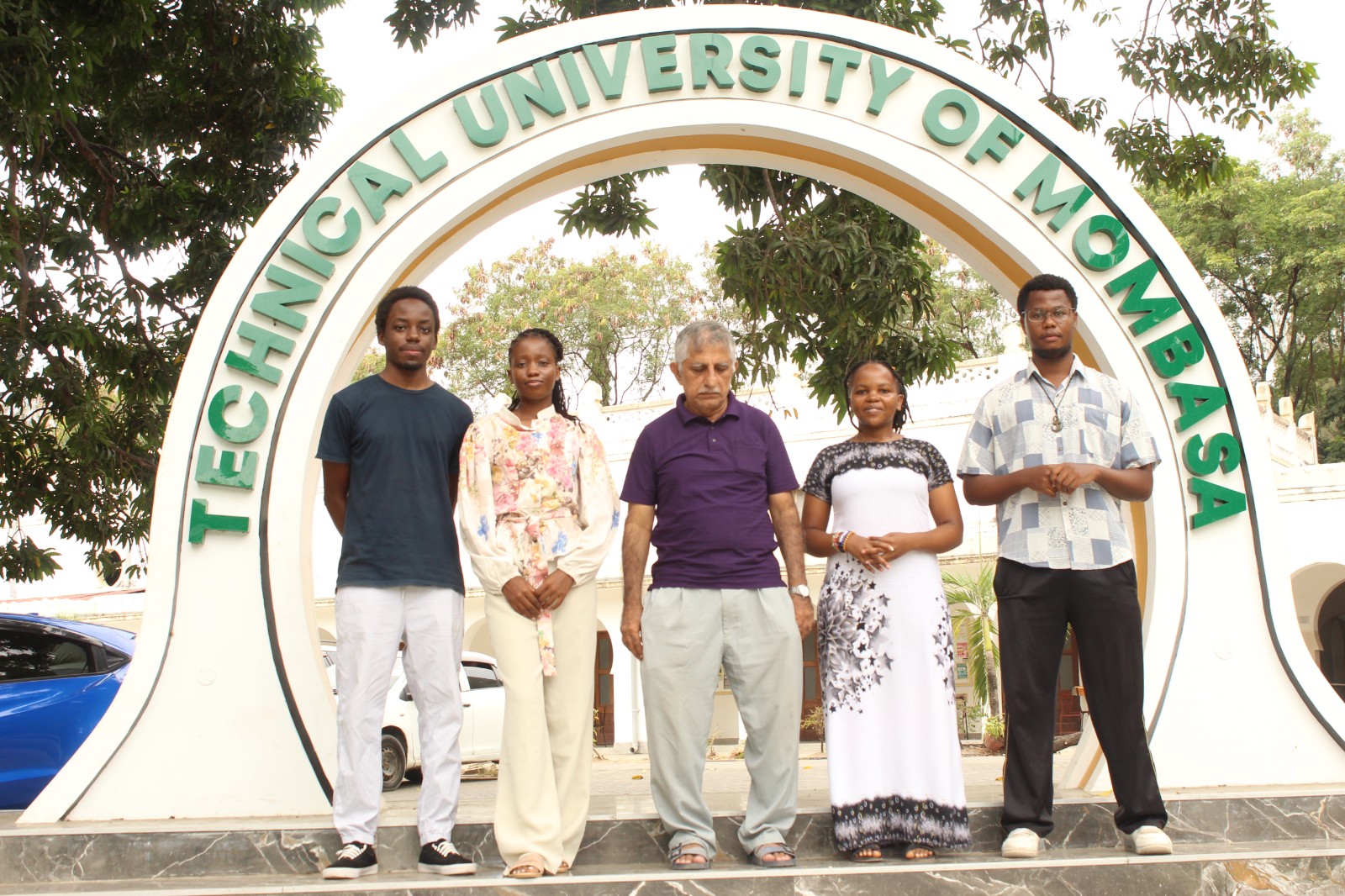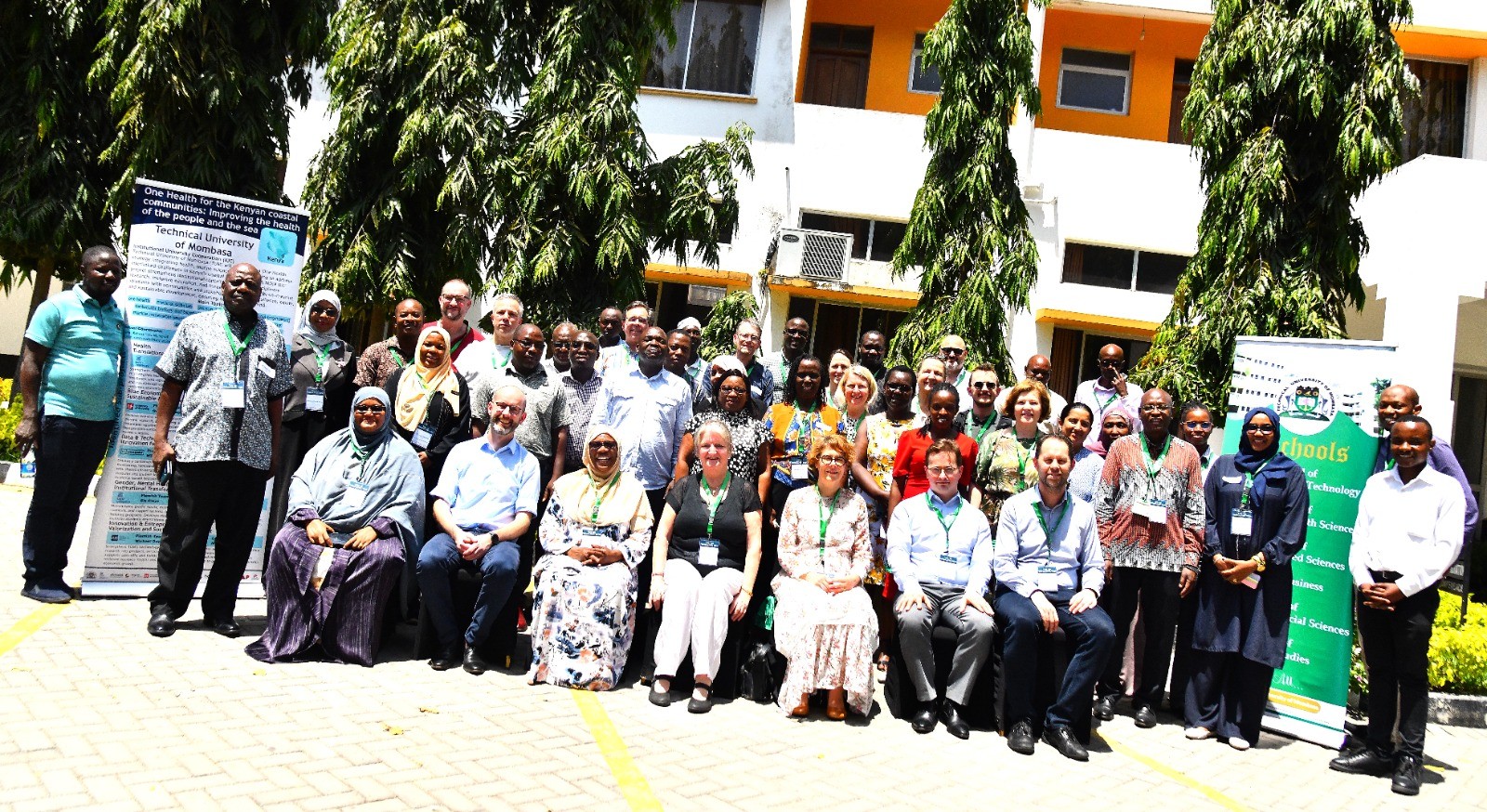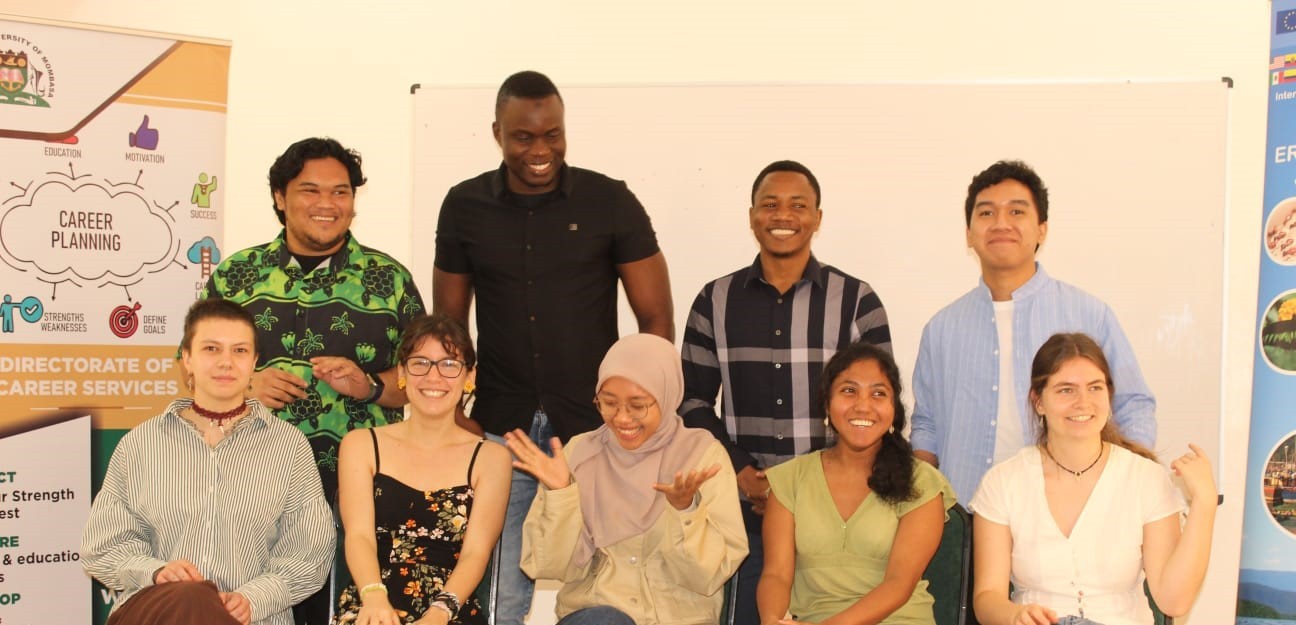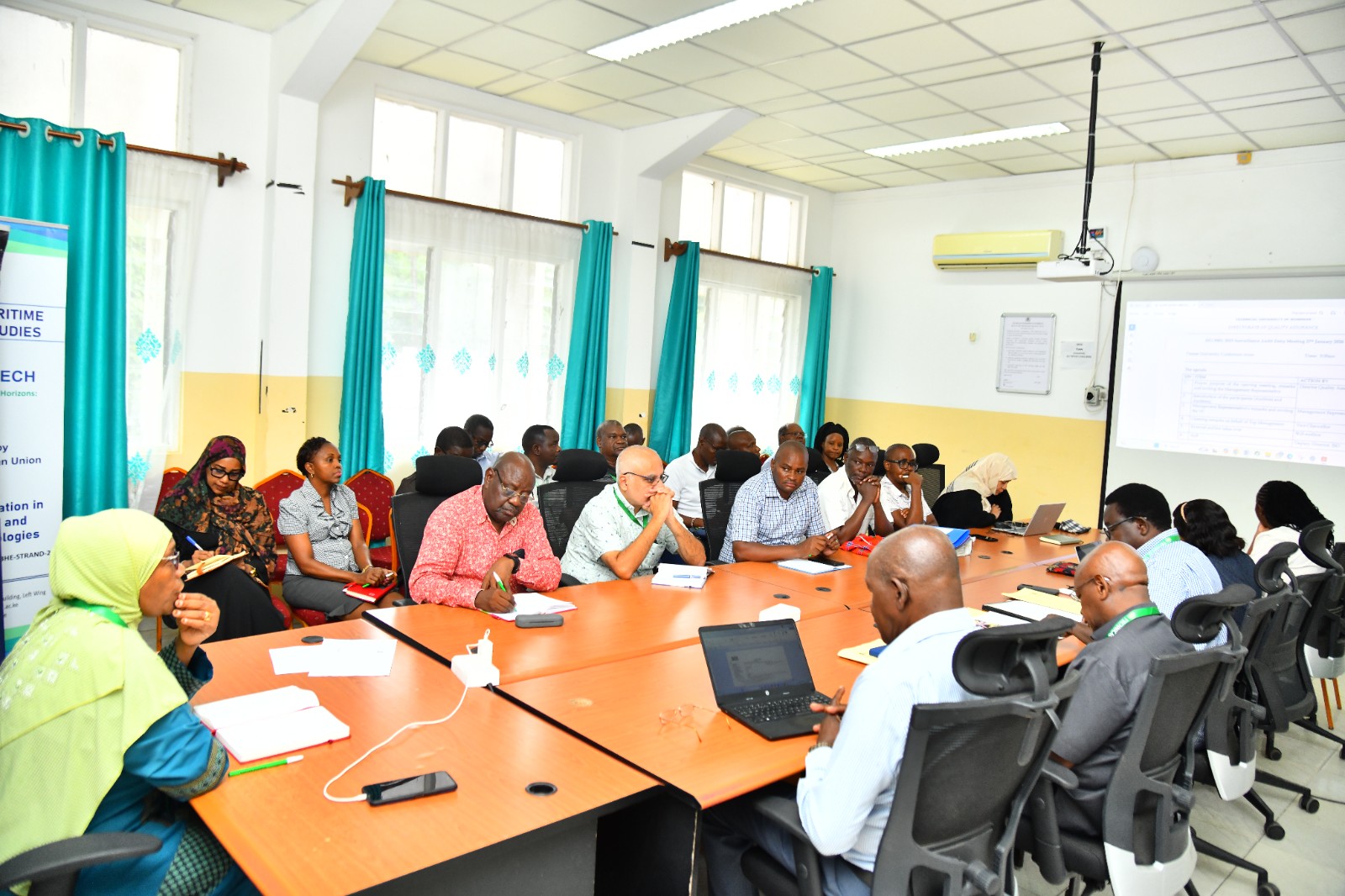Earlier today, the Technical University of Mombasa held a training session on the Employee Assistance Programme (EAP) for Chairs of Departments, Heads of Departments, Deans and Directors. The training was organized by the EAP Committee, chaired by Ms Joan Cherotich, in collaboration with the Human Resources Department and the Guidance and Counselling Department.
Opening the session, Deputy Human Resource Manager Mr David Mwakidimi expressed his growing appreciation for the EAP initiative, noting how it has shed light on underlying issues contributing to workplace behaviours such as absenteeism and reduced productivity. He emphasized the need for greater understanding and support structures within the university.
Prof Joseph Rasowo, the Deputy Vice Chancellor for Administration, Finance and Planning, spoke candidly about the challenges university staff face, urging department heads to serve as the first line of support. He encouraged empathy, patience, and a proactive approach when dealing with mental health concerns.
Dr. Madiha Salim, the Dean of the School of Humanities and Social Sciences and a practicing counseling psychologist, led the first part of the training. She introduced participants to key concepts such as mental health awareness, stress-related disorders, maladaptive behaviors, substance use disorders, and mental health first aid. Dr. Madiha emphasized the importance of emotional intelligence, communication skills, social awareness, and empathy as essential tools for leadership in guiding and supporting teams. Furthermore, she highlighted the significance of active listening, demonstrating empathy without judgment, and recognizing signs of distress among staff members.
Dr. Soud Alli Tengah, Head of the Guidance and Counselling Department and a clinical psychologist, presented key aspects of the Employee Assistance Programme (EAP). This confidential and voluntary work-based program supports employees and their immediate families facing personal or work-related challenges that could affect their job performance and well-being.
He highlighted the proactive nature of the Employee Assistance Program (EAP) in addressing mental health issues. This includes early identification of problems, ensuring confidentiality, providing crisis support for situations like suicide, and offering educational initiatives to reduce stigma. He also talked about the resources available for both managers and employees to help balance their professional and personal lives, as well as the best practices for leaders in supporting their staff.
Professor Peter Gichangi, Deputy Vice Chancellor for Academic Affairs, Research and Extension, gave a presentation on academic management. He outlined the responsibilities of department heads and other committees, such as the Deans Committee and the Disciplinary Committee. He discussed common academic challenges and how these can often lead to mental health issues.
Professor Gichangi encouraged the department heads to ensure proper resource allocation, uphold safety in teaching areas, maintain ethics and integrity, and promote goodwill among both colleagues and students. He reminded the attendees, “None of us owns the university,” emphasizing the importance of selflessness, shared responsibility, support, and humility.
The training concluded with a vote of thanks from Ms. Madeliene Kaburu, who expressed her gratitude to the facilitators. She reminded the participants that since we spend a significant portion of our lives at work, it is essential to work together to create a supportive and conducive working environment.

